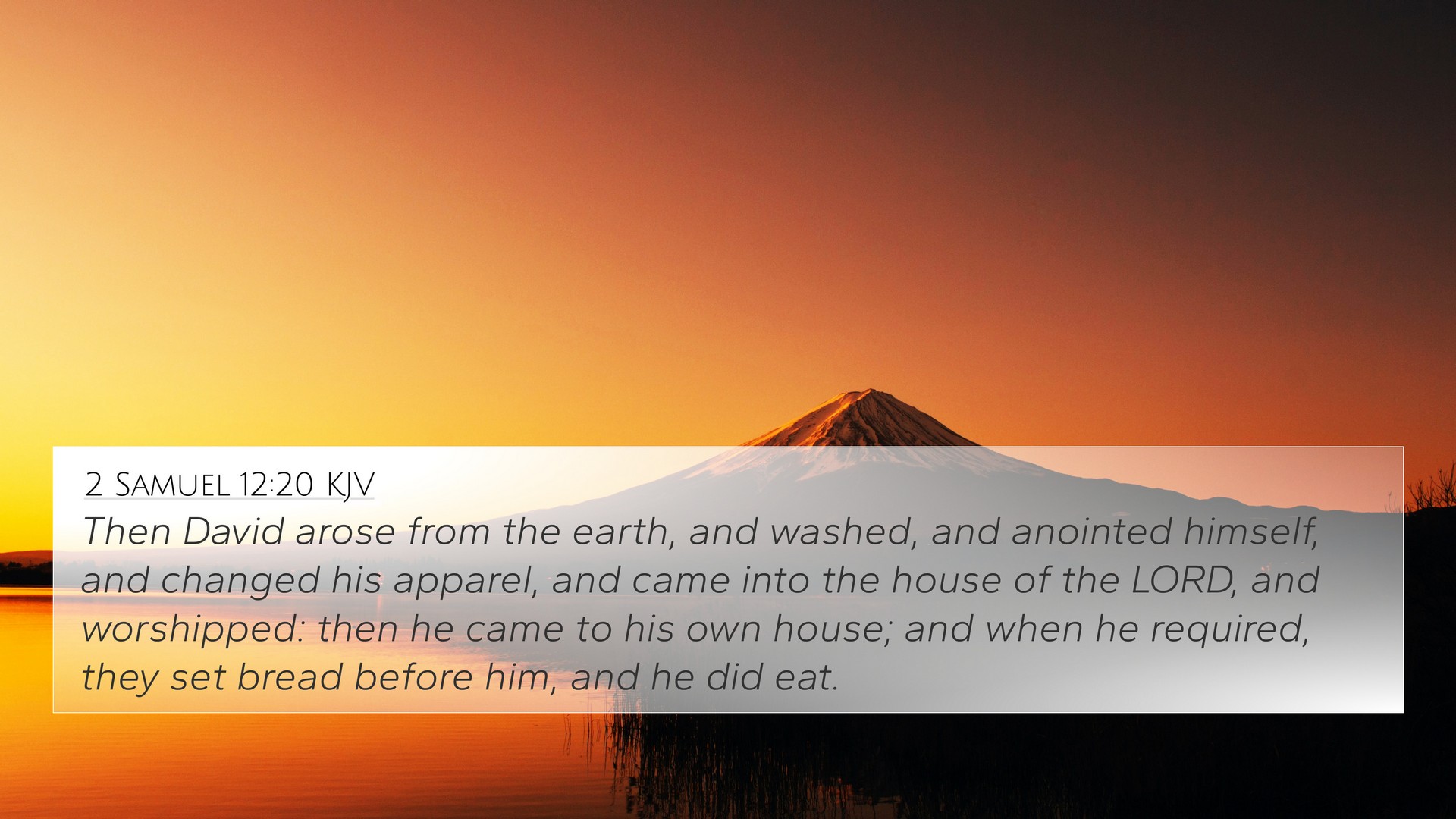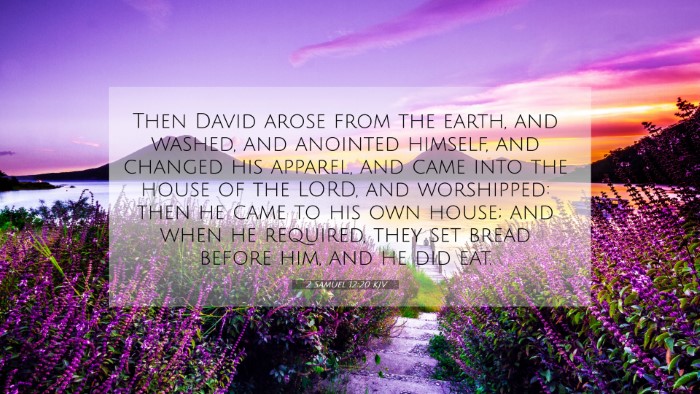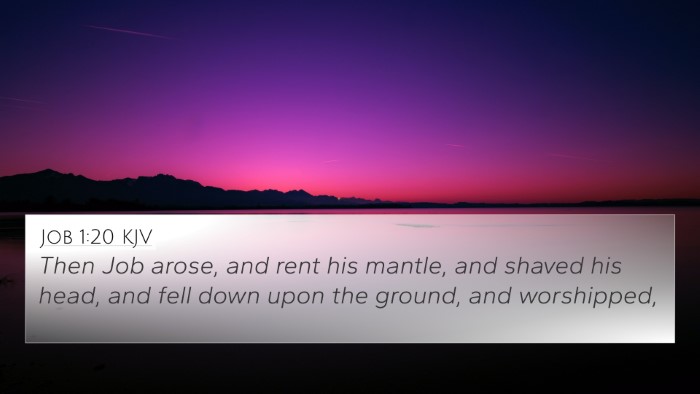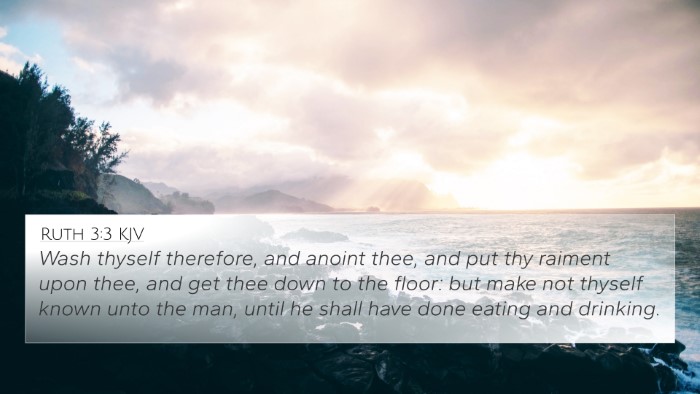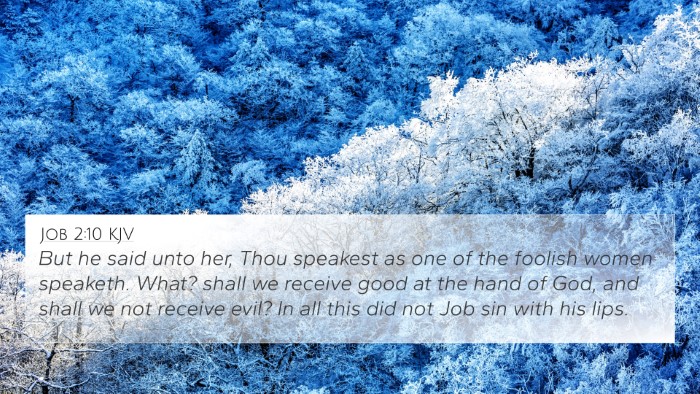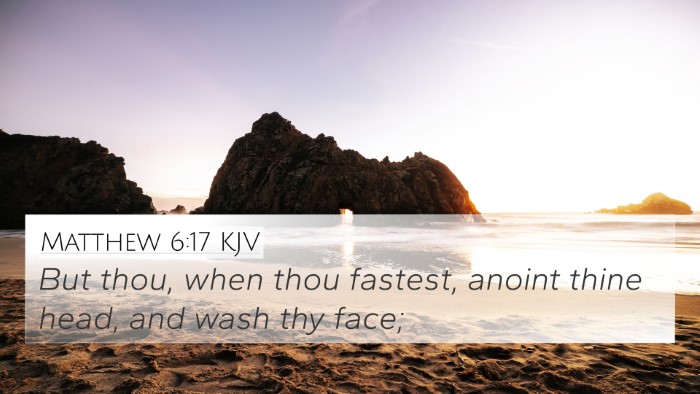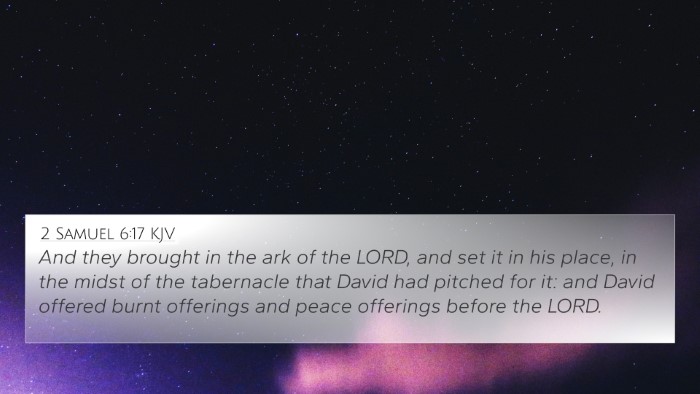Understanding 2 Samuel 12:20
Verse: 2 Samuel 12:20
"So David arose from the ground, washed and anointed himself, and changed his clothes; and he went into the house of the LORD and worshiped. Then he went to his own house; and when he requested, they set food before him, and he ate."
Summary of Meaning
This verse captures a pivotal moment in King David's life following the death of his infant son, a consequence of David’s sin with Bathsheba. The actions of David after receiving the news reflect his complex emotional and spiritual journey, illustrating themes of repentance, divine sovereignty, and worship.
Commentary Insights
- Matthew Henry:
Henry emphasizes the significance of David rising from the ground as a symbol of recovery from despair. He notes that David's washing and anointing were gestures of purification and preparation for worship, indicating his acceptance of God’s will.
- Albert Barnes:
Barnes draws attention to the contrast between mourning and worship. He indicates that David’s actions exemplify the believer's response to life's difficulties—transitioning from sorrow to reverence, acknowledging God’s ultimate authority over life and death.
- Adam Clarke:
Clarke elaborates on the significance of David changing his clothes as an outward sign of inward change. He interprets this as David's way of indicating his readiness to move forward in obedience to God, while highlighting the importance of faith in times of loss.
Thematic Connections
This verse serves as a profound illustration of several key themes in Scripture:
- Repentance and Restoration
- God's Sovereignty
- Worship in the Midst of Suffering
Bible Cross-References
The following verses connect thematically or narratively with 2 Samuel 12:20:
- 2 Samuel 11:27: Discusses the consequences of David's sin.
- Psalm 51: David's psalm of repentance reflects his heart after sinning.
- Job 1:21: Job exemplifies worship amidst profound loss.
- 1 Chronicles 21:17: Illustrates themes of sin and divine judgment.
- Romans 8:28: God's sovereignty over all circumstances, working for good.
- Hebrews 12:1-2: Encouragement for believers to persevere despite trials.
- James 1:2-4: Finding joy in trials as a means of spiritual growth.
Cross-Referencing Biblical Texts
Utilizing tools for Bible cross-referencing, such as a Bible concordance or reference system, can greatly enhance understanding of interconnected themes:
- Exploring similarities between 2 Samuel 12:20 and other verses helps illuminate God’s unchanging nature.
- Utilizing Bible cross-reference guides can aid in identifying key theological insights.
- Engaging in cross-reference Bible study methods deepens one’s scriptural knowledge.
Practical Applications
When reflecting on 2 Samuel 12:20, consider these practical applications:
- Worship in Hardship: Acknowledge moments of grief while committing to worship.
- Transformation: Embrace actions that signify a fresh start, akin to David changing his garments.
- Hope in God’s Plan: Trust in God’s sovereignty over our circumstances, even in suffering.
Conclusion
2 Samuel 12:20 stands as a monumental text that encapsulates the journey from despair to worship, inviting believers to explore deeper connections through cross-referencing scripture. By drawing parallels with other biblical accounts, we can garner a richer understanding of God's character and our responses to life's challenges.
Further Study Suggestions
For those desiring to delve deeper into the themes presented in this verse, consider:
- Comparative studies on Old and New Testament connections, especially concerning sin and redemption.
- Utilizing comprehensive Bible cross-reference materials to explore thematic connections across different scripture.
- Exploring the interplay between the Prophets and Apostolic teachings as they relate to repentance and forgiveness.
